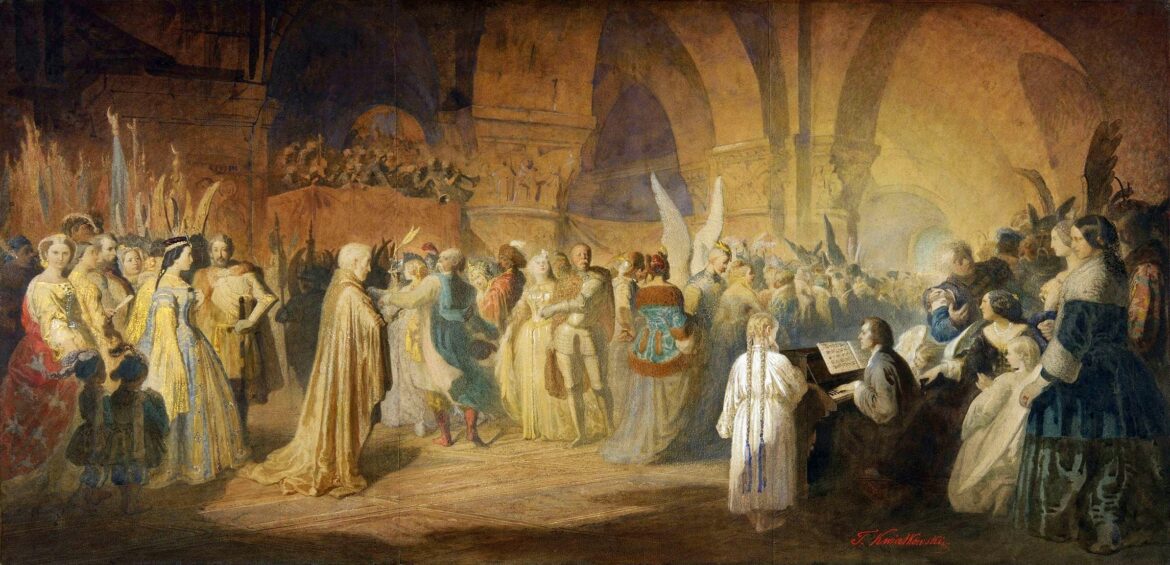The achievements of Julian Klaczka (1825-1906), or rather Jehuda Lejb, for Polish culture, are now completely forgotten. Many researchers were particularly fascinated by his glittering and extraordinary European career. How did it happen that the son of a Jewish merchant from Vilnius became not only a loud advocate of Polish Romanticism, who gained great popularity among readers of the most eminent French magazines of the 1860s but was also the most ardent advocate of the Polish cause in European journalism of that generation?
Klaczko was born into a Jewish family that represented the Haskalah traditions. Being immersed in Polish culture, he began studies in Królewiec (today’s Kaliningrad) and Heidelberg. Patriotism and love for Poland made him a participant in the Greater Poland Uprising (1848), being friends with its leader Dezydery Chłapowski. After it collapsed, he emigrated to Paris, where he joined the Hotel Lambert organization. This group gathered Polish emigrants after the fiasco of the anti-Russian November Uprising (1831). The aforementioned hotel gave its name to the Polish patriots’ movement. Its regular visitors were the wealthy intelligentsia, developing then in Paris. In the Hotel, a dominant group were Catholics with conservative views. Under their influence and the atmosphere of this place, Klaczko was baptized and made friends with the Bishop of Kujawy and Kalisz, Józef Szczepan Koźmian.
Klaczko began his career by collaborating with the well-known French newspaper Revue des Deux Mondes. There, he published articles on Polish literature, and also took part in the edition of Adam Mickiewicz’s writings. He also translated his works into Hebrew. Thanks to the recognition of French readers, he became a member of the French Academy.
When the January Uprising broke out in Poland (1863), he engaged in diplomatic action for the Polish cause. Despite the defeat of the insurgents, he remained devoted to the issue of Poland’s independence. He left for Galicia, where he was appointed an Austrian court counsellor at the Ministry of Foreign Affairs in 1870. He used his position in an attempt to influence Europe’s policy for the Polish interests. When the goals he set for himself did not bring the expected results, in 1888 he started writing essays on art and became a member of the Krakow Academy of Learning.
According to some Polish researchers, Klaczko was one of the greatest minds of 19th-century Europe. He was buried at the Rakowicki Cemetery in Kraków, tomb section no.1.





